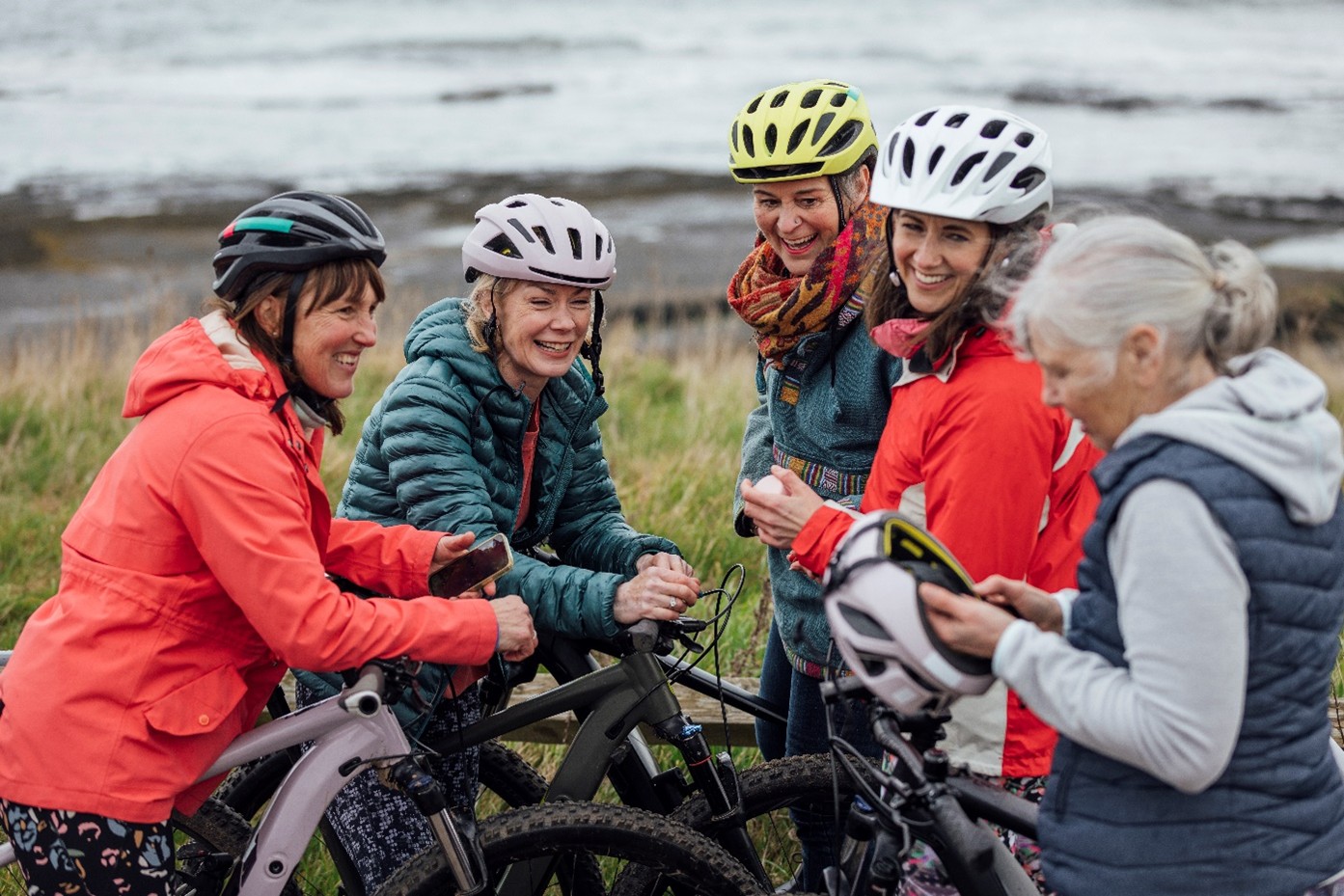AARP Hearing Center

As we get older, keeping our minds sharp becomes increasingly important—and fortunately, one of the best ways to protect our brain health is also one of the most fulfilling: building and maintaining meaningful social connections.
Dr. Suvi Neukam, a geriatrician at Oregon Health & Science University (OHSU), has seen firsthand how social engagement supports cognitive and emotional health in older adults across the state. “Social interaction isn’t just something nice to have,” she says. “It plays a central role in brain function, emotional resilience, and even longevity.”
Why Social Engagement Matters
Research suggests that older adults who maintain active social lives are less likely to develop cognitive impairment and dementia. Dr. Neukam compares socializing to brain exercise: “When we connect with others—talking, laughing, problem-solving—we’re strengthening memory, attention, and executive function.”
It’s not just about the quantity of interactions, either. Quality matters. Sustained relationships, meaningful activities, and feeling needed all contribute to what psychologists call eudaimonic well-being—a sense of purpose that has been directly linked to improved brain health.
“If we don’t have a reason to get out of bed,” Neukam notes, “we often start losing our ability to get out of bed. Social purpose is protective.”
The Hidden Toll of Isolation
Social isolation and loneliness have profound biological effects. Studies have shown that isolation triggers stress responses in the body, increasing inflammation and reducing brain resilience.
“When we’re disconnected, our cortisol levels rise, and chronic inflammation can set in,” explains Dr. Neukam. “That inflammation affects vascular health, which in turn is tied to brain health. What’s good for the heart is good for the brain—and isolation is bad for both.”
Beyond the chemistry, isolation can lead to depression, anxiety, and apathy—symptoms that are themselves risk factors for cognitive decline. “We often see apathy or withdrawal before other signs of cognitive change,” she adds. “These early warning signs should never be ignored.”
Creating Connection: What Works Best?
Dr. Neukam encourages older adults to think creatively and personally when seeking connection. “There’s no one-size-fits-all solution. The best activity is the one you’re going to enjoy and stick with.”
Here are some categories of social engagement shown to boost cognitive health:
- Creative and Leisure Activities: Book clubs, art classes, music groups, and even knitting circles stimulate the brain and create bonds.
- Physical Activity with Others: Group exercise, like tai chi or walking groups, combines physical and social benefits.
- Cultural and Faith-Based Involvement: Attending plays, concerts, or services builds both community and purpose.
- Volunteering and Advocacy: Meaningful service can fill the “purpose gap” left by retirement, and supports cognitive resilience.
In-Person, Virtual, or Both?
While in-person interaction is the gold standard, virtual and phone-based options still offer real value—especially in rural or transportation-limited communities. Dr. Neukam advises a flexible approach: “Perfection isn’t the goal. If you can’t get to an in-person event every week, mix it up with virtual activities or phone calls. Something is always better than nothing.” She adds that, “thanks to the pandemic, there’s now a rich menu of virtual offerings across Oregon.”
Oregon Resources to Know
Oregon offers a wide range of virtual classes, community-building events, and volunteer opportunities statewide. But Dr. Neukam also points to lesser-known local programs making a big impact:
- Virtual Resources: AARP Oregon’s Virtual Community Center – a hub for in‑person and online events, plus free digital tools like cognitive assessments and more. Join here: AARP Virtual Community Center.
- Phone Lines: Free phone‑based companionship via landline or cell.
- The David Romprey Oregon Warmline is available 24/7 at 1‑800‑698‑2392, led by trained peers.
- Senior Loneliness Line (Lines for Life) — available to Oregon adults 60+ daily from 5:30 am–11:30 pm at 503‑200‑1633 or 800‑282‑7035.
- VIEWS (Portland area): Conversations on Aging (formerly VIEWS) – in‑person drop‑in peer groups for older adults to connect casually and regularly. Learn more: Conversations on Aging
- Lane County Senior Companion Program: A volunteer program matching older adults in Lane County with trained companions for ongoing social engagement. More info at Lane Community College’s site: Senior Companion Program – Lane CC To participate or volunteer, call 541‑463‑6260.
- Community Connection of Northeast Oregon (CCNO): Serving Baker, Union, Wallowa, and Grant Counties, CCNO provides transportation and organizes enriching for older adults. Visit their site: Community Connection of Northeast Oregon Contact the La Grande office at 541‑963‑3186.
- Club 60 Senior (Josephine County): A grassroots response offering coffee hours, games, Tai Chi, chair yoga, and meaningful connection at the Josephine County Senior Resource Center in Grants Pass. Details: Club Sixty
- Papa: A national program active in Oregon that pairs older adults with younger companions—so-called “Papa Pals.” They support both companionship and errands, and may be covered through insurance benefits. Explore here: Papa Companion Care
Dr. Neukam encourages Oregonians to explore local community centers, which are often underutilized gems. “Even if it’s a youth-focused center, ask what’s available for seniors. You might be surprised.”
Find events at https://local.aarp.org/virtual-community-center/































































